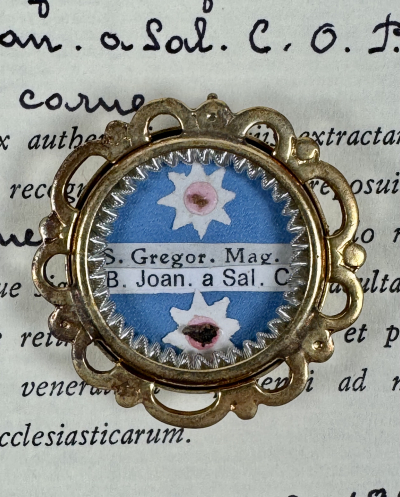Saint Pope Gregory I (†604), commonly known as Saint Gregory the Great, was one of the Latin Fathers and a Doctor of the Church. He is considered a saint in the Catholic Church, Eastern Orthodox Church, Anglican Communion, various Lutheran denominations, and other Protestant denominations. He is known for instituting the first recorded large-scale mission from Rome, the Gregorian mission, to convert the then largely pagan Anglo-Saxons to Christianity. Gregory is also well known for his writings, which were more prolific than those of any of his predecessors as pope. The epithet Saint Gregory the Dialogist has been attached to him in Eastern Christianity because of his Dialogues. Throughout the Middle Ages, he was known as "the Father of Christian Worship" because of his exceptional efforts in revising the Roman worship of his day. His contributions to the development of the Divine Liturgy of the Presanctified Gifts, still in use in the Byzantine Rite, were so significant that he is generally recognized as its de facto author. Immediately after his death, Gregory was canonized by popular acclaim. He is the patron saint of musicians, singers, students, and teachers. His Feastday is commemorated on 3 September (Latin Church) and 12 March (Eastern Orthodox Church, Eastern Churches, Anglicanism, Lutheranism).
Blessed John of Salerno (†1242) was ordained a priest. While pursuing studies at the University of Bologna he was attracted to the Order by the preaching of Blessed Reginald. Saint Dominic himself received him and then sent him to Florence to establish the priory of Santa Maria Novella. He also established a monastery of Dominican nuns at the nearby city of Ripoli. He was an eloquent preacher and Pope Gregory IX commissioned him to deal with the heretical sect known as the Patarines. His Feast Day is commemorated on August 9.








 Поменять язык на русский
Поменять язык на русский 